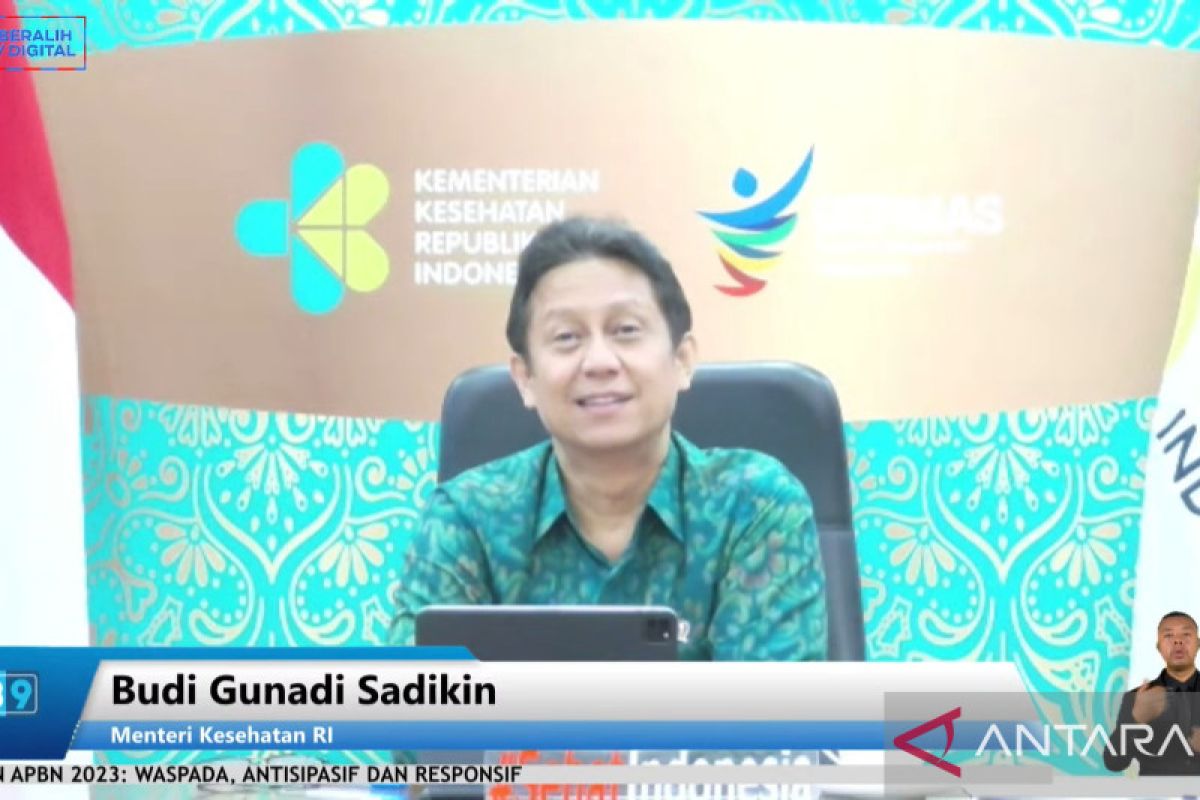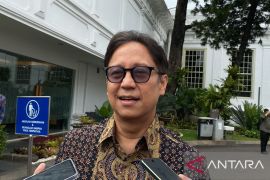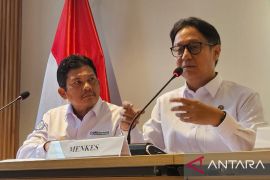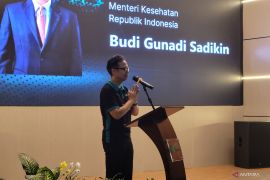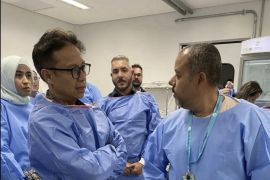Now, within 18 months, we have established more than one thousand PCR (test) laboratories.Jakarta (ANTARA) - Health Minister Budi Gunadi Sadikin assessed that Indonesia stands to learn valuable lessons of improving health surveillance and exploring the use of digitalization from the COVID-19 pandemic.
"At the start of the COVID-19 outbreak, our laboratory network was very small. Now, within 18 months, we have established more than one thousand PCR (test) laboratories," he noted at a virtual event titled "Government’s Work Achievement in 2022" on Friday.
The health crisis that struck during the pandemic made the government to strengthen surveillance by building and improving the quality of laboratories throughout Indonesia, so the government could conduct tracing and tracking of COVID-19 transmission more optimally.
Related news: Younger generation should learn about pandemic handling: Minister
Earlier, Indonesia only had 10 PCR testing laboratories. With rapid developments in infrastructure, currently, the number has increased more than 100 folds.
“The PCR (testing) is not only for (detection of) the COVID-19 virus but can also be used for (detecting) other viruses, bacteria, or parasites. These laboratories have been connected to the system of the health ministry," the minister noted.
The COVID-19 tracking system is also directly connected to the PeduliLindungi application, so any person exposed to the virus can be identified immediately, and in this way, their movements will be restricted. Furthermore, they will receive drug assistance through telemedicine.
In addition to the laboratory, the government is developing Whole Genome Sequencing (WGS) devices that can quickly find which COVID-19 variant infected the patient.
Related news: Ministry seeks to plug COVID vaccine shortage with domestic vaccines
Earlier, Indonesia only had nine WGS devices. Currently, the government has provided over 50 WGS devices across the country.
"It (the WGS device) can also be used for research and development of advanced drugs in the future," Sadikin noted.
The other lesson learned during the pandemic was the use of digitization to increase vaccination coverage.
Digitalization also helps the government to transform all data collection systems across ministries and agencies.
The minister remarked that six transformations were conducted by his party: the transformation of primary health services, hospital services, health sector resilience, health financing system, health human resources, as well as health technology.
"The president (Joko Widodo/Jokowi) had asked that the six reforms be completed before the end of his office term in 2024," Sadikin added.
Related news: Govt probing drugs, raw materials suspected of causing kidney failure
Related news: Bolster health protocols as XBB variants detected in Indonesia: Govt
Translator: Hreeloita Shanti, Uyu Liman
Editor: Fardah Assegaf
Copyright © ANTARA 2022
